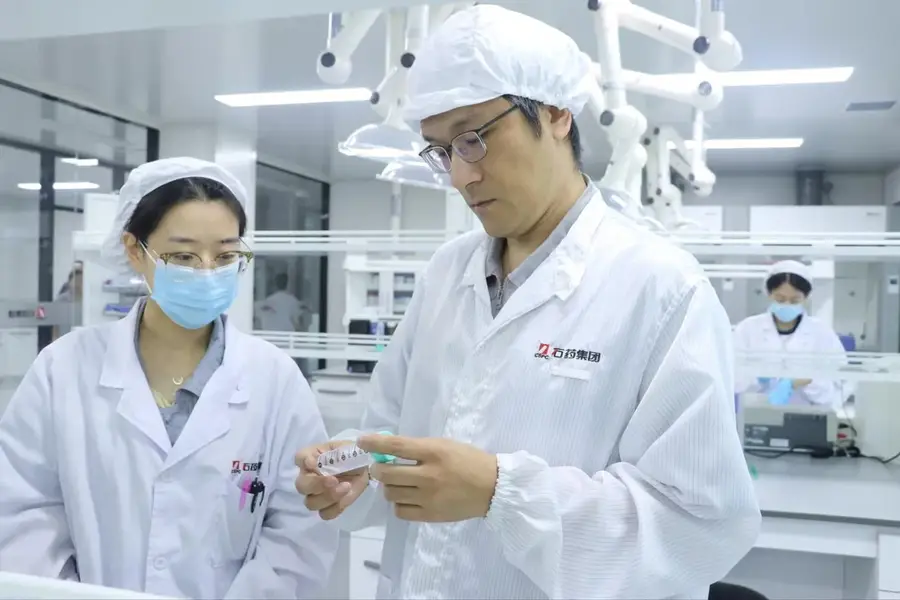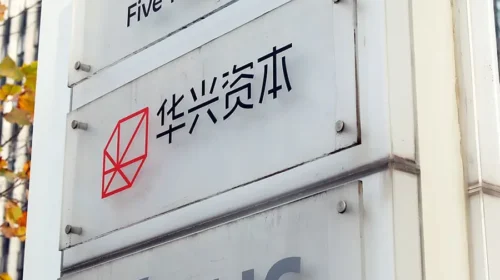CSPC Pharma teases big bucks deals after earnings miss

The Chinese drug giant revealed it was in talks with three parties to license its products for up to $5 billion in potential fees, a day after it delivered lackluster earnings
Key Takeaways:
- The drug firm’s revenue dropped nearly 22% in the first quarter while net profit fell just over 8%
- The ultimate value of the licensing deals, if finalized, would depend on the size of upfront payments and whether milestone goals are met
By Molly Wen
China’s pharmaceutical industry has been on a mission to transform itself from a producer of cloned drugs to a global pioneer of new therapies.
As those efforts start to bear fruit, the firms are striking lucrative partnership deals to license their Chinese drugs for development or sale in overseas markets.
CSPC Pharmaceutical Group Ltd. (1093.HK), one of China’s top four generic drug makers, is a case in point, illustrating how the sale of selected rights to promising novel drugs is becoming a significant growth engine for the industry.
So much so, that the company chose to tell investors on May 30 that it was in talks on three such tie-ups, even before the deals have been sealed. CSPC Pharma said the transactions under discussion could yield up to $5 billion in initial fees and milestone payments over time, in an announcement that departed from the usual practice of keeping commercial deals under wraps until fully signed off.
Notably, CSPC Pharma chose to flag up the potential for a big pay-off just after it had reported disappointing quarterly earnings, with profits squeezed by price controls in China’s national health insurance program.
The drug licensing talks cover the development, production and sale of a targeted cancer therapy and other CSPC Pharma products, the statement said. The cancer treatment in question is an antibody-drug conjugate that targets the epidermal growth factor protein in tumor cells.
Discussions on one potential transaction have reached an advanced stage and are expected to be finalized later this month, the company said. However, the statement contained multiple caveats reminding investors that the talks were ongoing and no legally binding pacts had yet been agreed.
The transactions, if confirmed, would add to a growing list of CSPC pipelines under joint development or licensing arrangements. The company has already done two partnership deals this year. Last month it disclosed a global licensing pact with BeiGene (688235.SH; 6160.HK; ONC.US) for a drug designed to target cancers through the MTAP enzyme pathway. CSPC Pharma pocketed $150 million upfront and retains the right to up to $135 million in staged development payments and up to $1.55 billion in fees related to sales milestones.
That followed a February deal in which Radiance Biopharma bought European and U.S. rights to develop and commercialize an antibody-drug conjugate targeting the ROR1 protein. Radiance paid $15 million upfront and agreed to $150 million in milestone payments to CSPC Pharma during the drug development and certification stage, as well as $1.08 billion in sales milestone payments and a percentage of revenue.
Based on a headline figure of $5 billion, the three deals on the table would each be worth an average of around $1.7 billion, on a par with the BeiGene collaboration. However, the eventual realized proceeds from each transaction will be determined by the scale of the upfront fees and whether milestones can be achieved.
Now for the bad news
The timing of the announcement suggests a deliberate move to soften the blow from underwhelming quarterly results released on May 29. If so, it had the desired effect. The firm’s stock price rose 16.9% over the six trading days after the statement was issued.
In the first quarter, revenue fell 21.91% to 7.02 billion yuan ($976,000) and net profit sank 8.36% to 1.48 billion yuan from the same period a year earlier. Prices of two key products for chemotherapy and blood conditions had to be cut to meet the requirements of China’s health insurance scheme. As a result, revenue from finished drugs fell 27.3% to 5.5 billion yuan and income from the oncology business plunged 65.7%.
It was a familiar pattern of sliding turnover and sinking profits, as the company invests heavily in R&D to drive its shift from generic to ground-breaking drugs. In 2024, CSPC Pharma’s revenue fell 7.8% from the prior year, while net profit dropped 25.4% to 4.68 billion yuan. In the first quarter of this year, R&D expenses rose 11.4% and accounted for 18.56% of operating revenue. However, the innovative drug business still lacks the economy of scale to serve as a strong revenue driver.
Investors worry that the traditional drug business, as it gradually winds down, will not be able to keep financing the shift into immunotherapy and other novel drugs, pushing the stock price down to HK$4.17 at one point earlier this year.
The prospect of large-scale deals may take the edge off that anxiety, but investors should bear in mind the risk that partnerships can swiftly unravel. VCBeat, a biotech and healthcare-focused information platform, estimates that of 62 licensing deals between Chinese pharmaceutical companies and foreign partners in 2020, at least 25 had been canceled by April this year, a reversal rate of 40%. A deal between CSPC Pharma and Elevation Oncology offers a cautionary tale. Elevation obtained licensing rights over the cancer drug EO-3021 from CSPC Pharma for $27 million upfront and $1.15 billion in milestone payments. However, results of Phase One U.S. clinical trials fell short of the outcome of Chinese tests and Elevation pulled the plug on the project.
Such discrepancies between U.S. and Chinese trials are not uncommon, but the gap reflected poorly on CSPC Pharma.
Its stock is trading at a price-to-earnings (P/E) ratio of around 20 times, much lower than the multiple of 51 for Jiangsu Hengrui Pharmaceuticals (600276.SH; 1276.HK), an industry peer listed in Hong Kong and Shanghai. Developing innovative drugs is a high-stakes, long-haul business. With CSPC Pharma facing a potential funding squeeze, with the generics business slowing and new products still taking off, investors may want to consider watching from the sidelines.
To subscribe to Bamboo Works weekly free newsletter, click here





